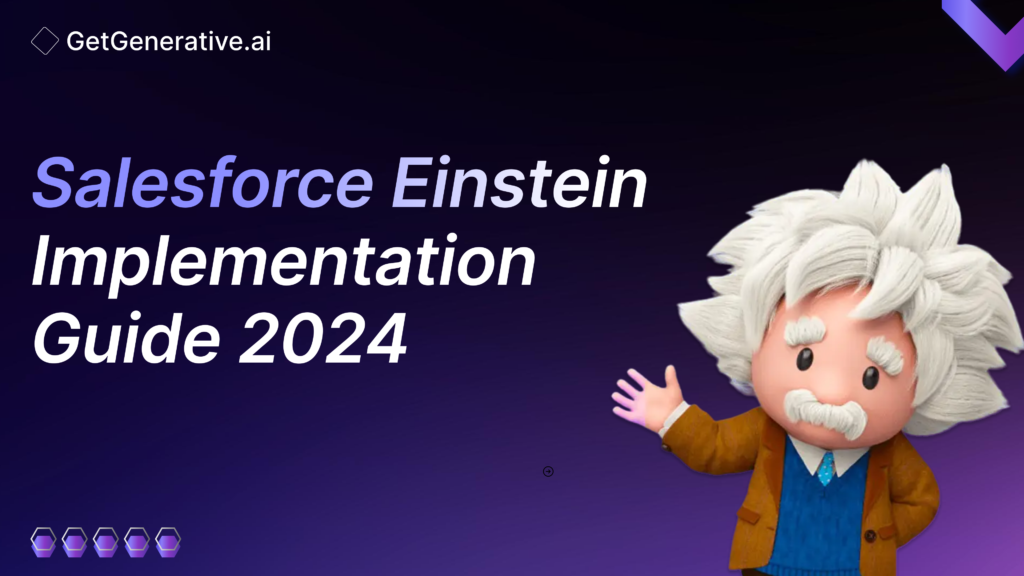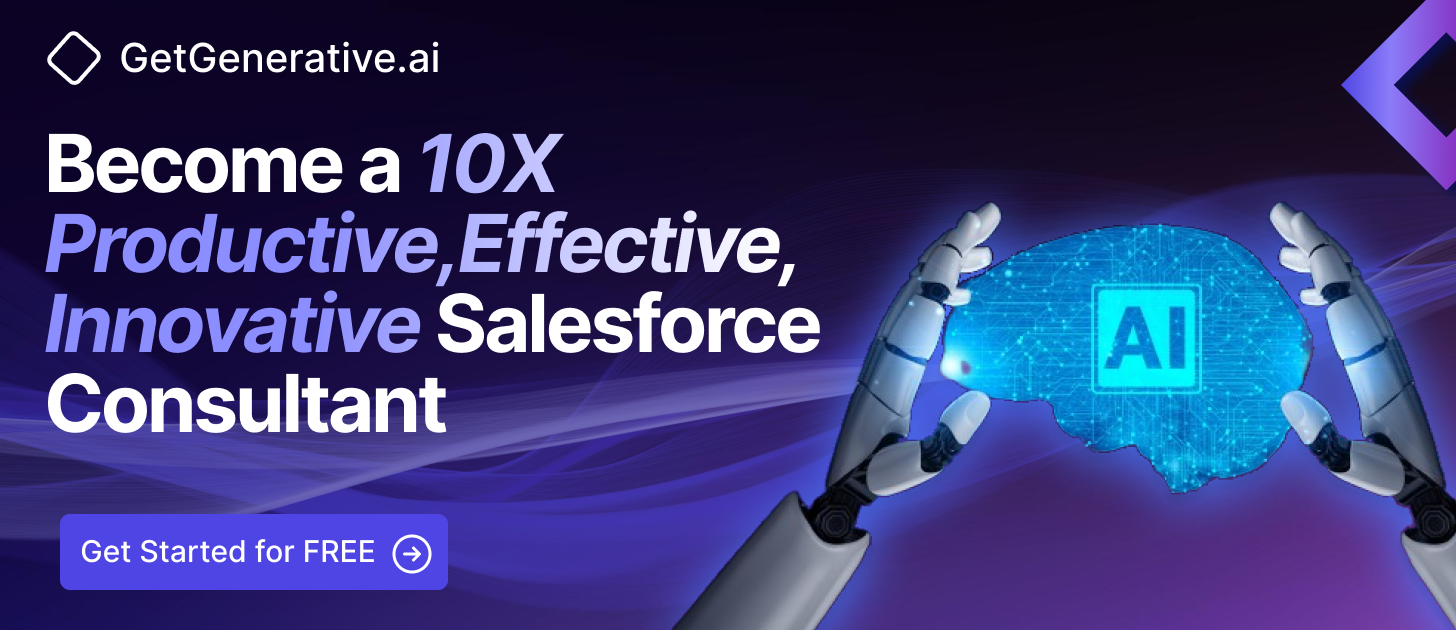Salesforce Einstein Implementation Guide 2024
In today’s competitive business landscape, leveraging artificial intelligence (AI) has become increasingly crucial for organizations looking to stay ahead of the curve. Salesforce Einstein, the AI-powered solution integrated into the CRM platform, has transformed how businesses approach customer relationship management. By harnessing the power of machine learning, deep learning, predictive analytics, natural language processing, and data mining, Salesforce Einstein enables companies to make data-driven decisions, automate processes, and deliver personalized experiences to customers.
The impact of AI on CRM is undeniable. A study by McKinsey & Company found that AI-powered CRM systems can potentially unlock up to $1.1 trillion in additional value for the global economy. This value comes from improved efficiency, enhanced customer experiences, and increased revenue opportunities.
Salesforce Einstein has been at the forefront of this AI revolution in CRM. Since its launch, it has helped countless businesses across various industries achieve remarkable results. From automating lead scoring and opportunity insights to enabling predictive forecasting and sentiment analysis, Salesforce Einstein has proven to be a game-changer for organizations looking to optimize their CRM strategies.
This blog post will dive deep into Salesforce Einstein implementation, exploring its features, benefits, pricing, and industry-specific configurations. We’ll also address common questions and provide insights to help you make informed decisions about integrating AI into your CRM strategy. So, let’s embark on this exciting journey and discover how Salesforce Einstein can revolutionize how you engage with your customers and drive business growth in 2024 and beyond.
What is Salesforce Einstein?
Salesforce Einstein is an artificial intelligence (AI) technology deeply integrated into the Salesforce Customer Success Platform. It combines powerful AI capabilities, including machine learning, deep learning, predictive analytics, natural language processing, and data mining, to deliver intelligent insights, predictions, and recommendations across the entire Salesforce suite of products.
At its core, Salesforce Einstein is designed to help businesses make smarter decisions by analyzing vast amounts of data generated within the Salesforce platform. It leverages advanced algorithms to identify patterns, uncover trends, and provide actionable insights to drive business success.
One of Salesforce Einstein’s key components is its machine learning capabilities. It continuously learns from the data it processes, improving its accuracy and performance. This means that the more data you feed into Salesforce Einstein, the smarter it becomes in providing valuable predictions and recommendations specific to your business.
Some specific examples of how Salesforce Einstein can be applied include:
- Sales Cloud: Einstein Lead Scoring prioritizes leads based on their likelihood to convert, while Einstein Opportunity Insights predicts the probability of closing a deal and suggests the next best actions.
- Service Cloud: Einstein Case Classification automatically categorizes and routes customer inquiries to the appropriate agents, while Einstein Article Recommendations suggests relevant knowledge articles to resolve cases efficiently.
- Marketing Cloud: Einstein Engagement Scoring identifies the most engaged prospects and customers, allowing marketers to target them with personalized campaigns. Einstein Journey Insights analyzes customer journeys across channels to optimize marketing strategies.
- Commerce Cloud: Einstein Product Recommendations offers personalized product suggestions to customers based on their browsing and purchase history, increasing average order value and customer satisfaction.
These are just a few examples of how Salesforce Einstein can be leveraged across different business functions. Its AI capabilities continuously expand, with new features and enhancements regularly added to address evolving business needs.
Also Read – Salesforce Data Cloud Implementation Guide 2024
How to Implement Salesforce Einstein in CRM?
Implementing Salesforce Einstein in your CRM involves the following steps:
- Assess your business needs and identify areas where AI can drive the most value.
- Ensure your Salesforce data is clean, accurate, and well-structured.
- Enable Einstein features within your Salesforce org.
- Train your team on how to leverage Einstein’s capabilities effectively.
- Continuously monitor and refine your AI models based on performance and user feedback.
Salesforce Einstein Features
Salesforce Einstein offers a comprehensive suite of AI-powered features designed to enhance various aspects of business operations. Let’s explore some of the key features in detail:
Einstein Lead Scoring:
- Analyzes historical lead data, such as demographic information, company size, industry, and past interactions, to predict the likelihood of a lead converting into a customer.
- Assigns a lead score ranging from 1 to 99, indicating the lead’s conversion potential.
- Enables sales teams to prioritize high-scoring leads and focus on the most promising opportunities.
- Continuously learns from new data and adjusts lead scores in real time based on changing patterns and behaviors.
Einstein Opportunity Insights:
- Predicts the likelihood of closing a deal based on factors such as deal size, stage duration, customer engagement, and historical win rates.
- Provides a probability score and an expected revenue amount for each opportunity.
- It offers intelligent insights and recommendations on the best next steps to take, such as sending a personalized email, scheduling a meeting, or providing additional resources.
- Helps sales teams strategically allocate their time and resources to high-value opportunities.
Einstein Forecasting:
- Generates accurate sales forecasts based on historical data, current pipeline, and real-time insights.
- Utilizes machine learning algorithms to identify patterns, seasonality, and other factors influencing sales performance.
- Provides granular forecasts at the individual rep, team, and region levels, enabling better resource allocation and goal setting.
- Offers “what-if” scenario planning to assess the impact of different variables on forecasted outcomes.
Einstein Case Classification:
- Automatically categorizes incoming customer inquiries and support cases based on their content and context.
- Utilizes natural language processing (NLP) to understand the intent and sentiment behind customer interactions.
- Routes cases to the most appropriate support agents or teams based on their skills, expertise, and availability.
- Suggest relevant articles, FAQs, or knowledge base entries to help agents resolve cases efficiently.
Einstein Article Recommendations:
- Recommends the most relevant knowledge articles to support agents based on the context of the customer inquiry.
- Analyze the case description’s content, the customer’s past interactions, and successful resolution patterns to identify the most helpful articles.
- Enables agents to access pertinent information quickly, reducing case resolution time and improving customer satisfaction.
These are just a few examples of the extensive features offered by Salesforce Einstein. Each feature leverages AI and machine learning capabilities to drive business success, improve efficiency, and enhance customer experiences.
Also Read – Salesforce CRM Implementation with AI
Salesforce Einstein Benefits
Implementing Salesforce Einstein delivers numerous benefits to businesses:
- Increased Efficiency: Automate repetitive tasks and streamline processes, allowing teams to focus on higher-value activities.
- Improved Decision-Making: Gain data-driven insights to make informed decisions and optimize strategies.
- Enhanced Customer Experience: Deliver personalized interactions and proactively address customer needs.
- Competitive Advantage: Stay ahead of the competition by leveraging AI-powered capabilities.
Salesforce Einstein Pricing
Salesforce Einstein is available as an add-on to various Salesforce editions, with pricing varying based on the specific features and the number of users. It’s best to contact Salesforce directly or work with a certified Salesforce partner to determine the pricing that aligns with your business requirements.
How do you configure Salesforce Einstein for specific industries?
Salesforce Einstein can be tailored to meet the unique needs of different industries. For example:
- Retail: Utilize Einstein’s predictive analytics to optimize inventory management and personalize product recommendations.
- Financial Services: Leverage Einstein’s insights to identify cross-selling opportunities and prevent customer churn.
- Healthcare: Use Einstein’s natural language processing capabilities to extract insights from unstructured medical data.
Is Salesforce Einstein Suitable for Small Businesses?
Absolutely! Salesforce Einstein is designed to scale with businesses of all sizes. Small businesses can benefit from AI-powered insights and automation to level the playing field and compete with larger organizations. Salesforce offers various editions and pricing options to accommodate the needs and budgets of small businesses.
Conclusion
Salesforce Einstein implementation is a powerful way to revolutionize your CRM strategy and unlock the full potential of AI. By leveraging Einstein’s features, businesses can make data-driven decisions, automate processes, and deliver exceptional customer experiences. Whether a small business or a large enterprise, Salesforce Einstein can be tailored to your needs and drive significant ROI.
To learn more about Salesforce implementation, visit GetGenerative.ai today.
Frequently Asked Questions (FAQs)
1. How long does it take to implement Salesforce Einstein?
The implementation timeline varies depending on the complexity of your Salesforce org and the specific Einstein features you want to enable. It can typically range from a few weeks to several months.
2. Can I use Salesforce Einstein with my existing Salesforce data?
Yes, Salesforce Einstein works seamlessly with your existing Salesforce data. However, ensuring data quality and structuring it appropriately is crucial for optimal results.
3. Does Salesforce Einstein require technical expertise to use?
While some technical knowledge is beneficial, Salesforce Einstein is designed to be user-friendly and accessible to business users. Salesforce provides extensive documentation, training resources, and support to help users leverage Einstein effectively.
4. Can I customize Salesforce Einstein to fit my specific business requirements?
Yes, Salesforce Einstein offers customization options to align with your unique business needs. You can work with Salesforce or a certified partner to configure Einstein features and models based on your requirements.
5. How does Salesforce Einstein handle data privacy and security?
Salesforce takes data privacy and security seriously. Einstein operates within the Salesforce platform’s robust security framework, ensuring your data remains protected and compliant with industry regulations.




